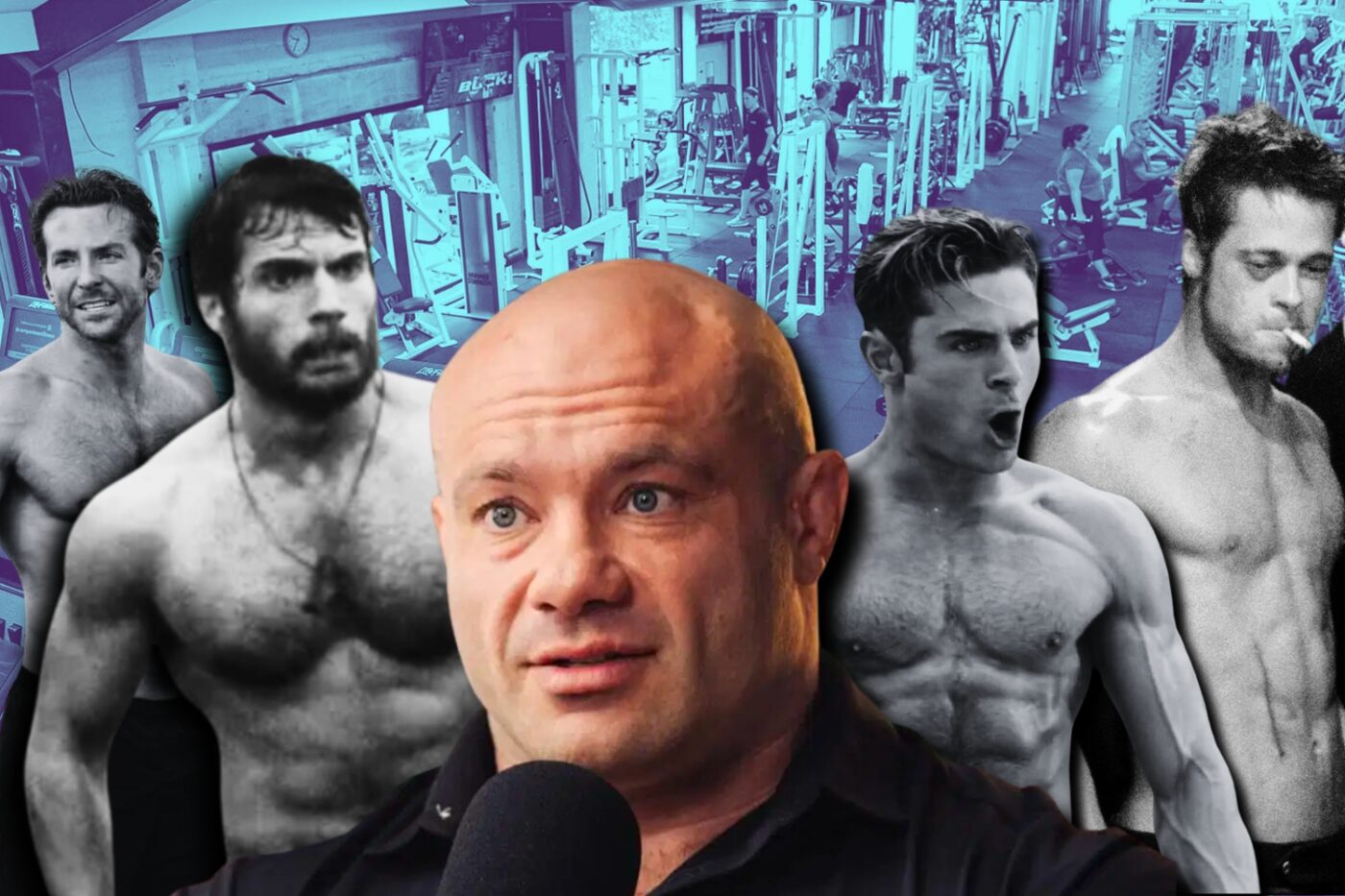It’s been a week of hard pills to swallow for the team at DMARGE who have spent years covering all aspects of wellness, helping blokes work on their fitness, mental health, relationships and always boasted a particular soft spot for the ancient art of bodybuilding and building muscle.
Following the revelation that every heartthrob you want to look like is actually juiced to the gills on ‘Vitamin T‘, Dr Mike Israetel — acclaimed exercise and sports science professor, competitive bodybuilder, and charismatic host of the Renaissance Periodisation YouTube channel — offered a brutally critical review of Bradley Cooper’s training for his role in American Sniper.
Bradley Cooper, who played military sniper Chris Kyle, underwent an undeniably impressive transformation for the role, apparently gaining 40lb (c. 19kg) of what appeared to be pretty lean muscle. Despite the impressive outcome, Israetel took issue with Cooper’s trainer, Jason Walsh, and the plan he devised for the Hollywood heartthrob.
What appeared to infuriate Israetel the most was the way in which the plan centred around a trap bar deadlift off of blocks. According to Israetel, this exercise is “one of the worst possible” for muscle growth. Why? He calls out its inability to target specific muscles effectively and its lack of a deep stretch component, which is crucial for muscle hypertrophy.
“A proposterous choice for the movement.”
Dr Mike Israetel
Israetel also went hard on critiquing the apparently less-than-ideal rationale behind Cooper doing two training sessions per day, suggesting that a sole focus on volume training — condensed into one longer session per day — would have been far more beneficial for Cooper’s muscle growth. He argues that the dual sessions were potentially counterproductive, interfering with the crucial recovery process needed for continual muscle mass development.

Finally, it was the nutritional reigmen that came under the spotlight: Israetel pointed out that a gradual increase in caloric intake — starting from 2,000 calories and peaking at 4,500 — might have led to excessive and very much unwanted fat gain rather than lean muscle mass. Instead, he suggests that a more consistent surplus, coupled with simpler resistance training, could have yielded better results.
The Rise Of ‘Vitamin T’
Israetel’s critique extends beyond Cooper’s regimen to a wider investigation on the Hollywood fitness industry., which we recently covered too off the back of Joel Kinnaman’s revelation that any of the heartthrob physiques that are now so common in Hollywood actually have a lot more to do with massive Testosterone — ‘Vitamin T’ — consumption, than hard training.
A DMARGE article from 2021 taps into the testosterone phenomenon, with the supplement becoming commonplace among those with the money and dedication to seek it out:
For some high-profile celebrities, testosterone supplements are also taken to keep energy levels on the up, which they claim assists them in remaining successful in life. Joe Rogan, for example, has previously admitted on an episode of his podcast (start at 34:30) that he takes testosterone supplements, citing age as the primary reason.
Though he claims not to be taking anything crazy, but rather just raising his testosterone to what it used to be naturally when he was 27, others are still not convinced. In any case: masculine icons like Rogan are helping testosterone supplements are being seen as less of a taboo and more something that more men are considering integrating into their daily lives.
Indeed, Greg Young, co-founder of Body Science told DMARGE that:
“The last decade has seen much better education about testosterone supplements, which has resulted in opening the conversation around them and drawing attention to their widespread benefits.”
Greg Young
“Their benefits expand far beyond the commonly known ones, such as increased muscle strength, physical endurance and sexual function, but to longevity, mood, mental acuity benefits and many more.”
Do you think the meteoric rise of Vitamin T is something of a slap in the face for those of us who dreamed of getting a clearly unattainable A-list body just by throwing weights around and pounding tarmac? Or do you see this as a brave new world where looking good has never been easier?
